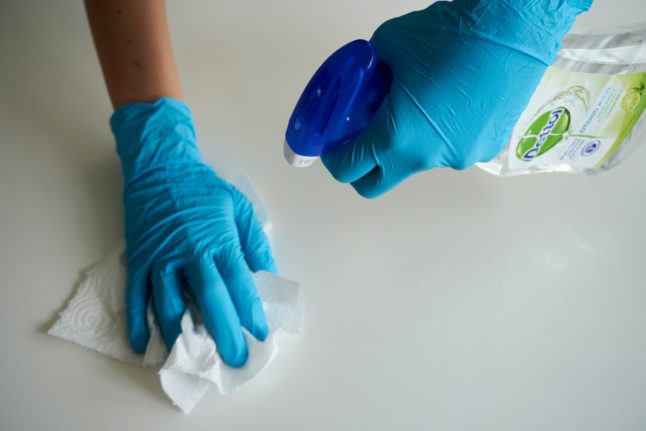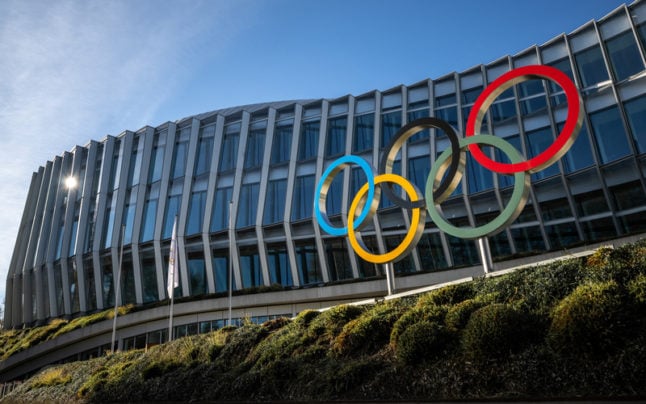Having spent the day in possession of a rented wet vacuum cleaner, I can report that there are ascending levels of cleaning and that once you start progressing up the scale, it’s hard to stop. The more you do, the more you feel you need to do. This is what has happened to the Swiss at large.
My cleaning blitz was sparked, as usual, by the imminent arrival of visitors. One member of our household, a long-haired collie, is the main contributor to the demand for cleaning. He seems to think that the hall rug belongs to him and I realised that it had gone beyond the point of acceptable grubbiness. I thought it might be nice to see the original colours again.
I had heard that wet vacuum cleaners could be rented in pharmacies so I went looking for one. My local pharmacies seem to have opted out of the wet vacuum cleaner rental market but I found out where I could procure one, in a large DIY store.
As with most new expenses in Switzerland, the vacuum cleaner ended up costing twice as much as expected. I was told it was 25 francs for the day but, how could I not have thought of this, you also need to use a specific cleaning product, the smallest bottle of which costs 20 francs.
As the woman in the shop went through the instructions on how to use the machine (bonus: I learnt a new word ‘gicler’, which means squirt), I felt I was being initiated into an important Swiss rite. She spoke to me as a fellow serious cleaner, the kind of person who would not settle for dry vacuuming only.
So I lugged the machine and the various hoses and tubes to the car, got it home, set up and ready to go. Once the problem rug had been dealt with, which only used two capfuls of the cleaning product, I was not satisfied. I absolutely needed to gicler more carpets and use up more detergent so I tackled the bedrooms.
Swiss people are usually dismayed to hear that we have carpets in our bedrooms. Think of the dust, they say. It can’t be that bad, I used to say. Reader, it is that bad. Things went from clean to cleaner because I decided I couldn’t tolerate the dust under the beds, which meant not just vacuuming around the beds but moving them and clearing out all the odds and ends lurking underneath.
Once I had cleaned the house like a woman possessed, I cleaned the wet vacuum cleaner inside and out (they wouldn’t take it back any other way) and dragged all the parts back out to the car. With my new dirt-tinted glasses on, I noticed the front door was a mess of cobwebs, insects, dirt and leaves.
Quelle surprise, the Swiss love for order and clean surfaces extends outside the living space. Gardens are kept in immaculate condition and front doors are neat and clear of any sign of grime, often graced with a pretty seasonal decorative arrangement. Our old metal umbrella bucket, home to generations of spiders, does not fit the bill.
I settled for hoovering the entrance mat, the threshold and high up over the door where there were signs of deceased biodiversity. The decorative stuff would have to wait for another day.
It’s nice to have a clean house but it’s less nice to be the one doing the cleaning. Traditionally, there was a bit of a taboo in Switzerland about having strangers clean for you, almost as if it meant the woman of the house was slacking.
Because, let’s be honest, housework in Switzerland is still largely carried out by women, whether paid or unpaid. Some Swiss households, one in seven according to a recent poll, do resort to hiring cleaning help and the work is relatively well paid and declared in about half of cases.
My burst of cleaning fervour has passed and the dust has settled back on most surfaces. The dog is back on the rug, and the visitors, who happen to be under 18, have made the house messier than before. Autumn leaves swirl around the floor, impossible to keep out.
It will be some time before I can tap into the Swiss cleaning streak again. A visit from my parents in law might do it. But in the meantime, I can enjoy the cleanliness and perfection of my Swiss neighbours’ homes, at least from the outside.
My theory is that squeaky clean Switzerland is a relatively new phenomenon, born of prosperity and the accompanying exclusion of women from the employment market in the mid-20th century. Like many of the high standards in this country, it’s nice to look at but hard to emulate.



 Please whitelist us to continue reading.
Please whitelist us to continue reading.
Member comments